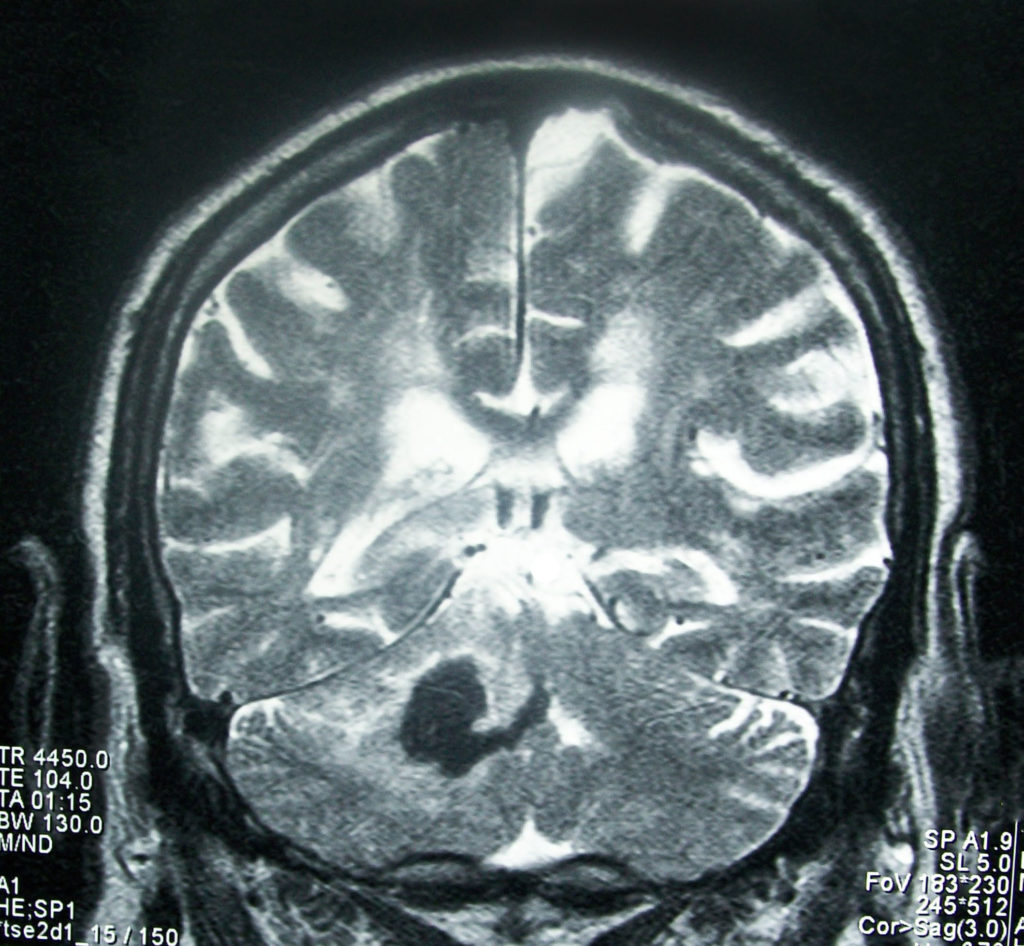Any injury that results in bleeding occurring in the brain is a medical emergency. These time-sensitive and urgent crises must be resolved immediately, or serious and often catastrophic injuries can occur. Without prompt and proper treatment, bleeding in the brain can often be fatal.
But of course, not every head injury results in a brain bleed. It’s important that you and your loved ones be able to recognize the warning signs of a brain bleed so you can receive prompt treatment, and to be able to advocate for proper care from your medical team. This post can help you understand the warning signs of a brain bleed – and also help you identify circumstances where you may need to speak to an experienced brain bleed attorney.

Cerebral Hemorrhage
What Is Bleeding in the Brain?
Brain bleeding can also be referred to as a brain hemorrhage. Depending on the location of the brain bleed, it may be classified as an intracranial hemorrhage, or an intracerebral hemorrhage.
Intracranial hemorrhages are ones in which the bleeding occurs completely within the skull, while intracerebral hemorrhages occur within the functional tissue of the brain, including the neurons and glial brain cells. Both types of hemorrhage can cause serious complications for the individual experiencing the brain bleed.
What Causes a Brain Bleed?
Your brain contains a multitude of blood vessels, and like any blood vessel in your body, these brain blood vessels can sometimes bleed. Causes of brain bleeds can be numerous, and include:
- Trauma to the head: Any kind of head trauma can cause a brain bleed. This includes car accidents, falls, assault, or sports injuries.
- Ruptured aneurysm: Brain aneurysms can occur due to high blood pressure, or when a blood vessel weakens and bursts in the brain.
- Hemorrhagic conversion: This is most often caused by a stroke, which causes inadequate blood flow to the brain. When there is blockage of a blood vessel that leads to the brain for a prolonged period of time, it can burst open causing a brain bleed.
- Brain tumor: A tumor can cause the area near it to bleed, as it puts pressure on the vessels that surround it.
- Spontaneous: While it is rare for spontaneous bleeding to occur in the brain, it can happen. People on blood thinners, or who have bleeding disorders, may be more prone to experience spontaneous brain bleeds.
Symptoms of a Brain Bleed
Brain bleeds can occur in anyone, at any time. Some symptoms may get worse quickly over the period of a few hours, but others may get gradually worse over the course of a few days. If you’ve experienced head trauma, be on the lookout for:
- Neck pain or stiffness
- Changes in vision
- Weakness on one side of your body
- Slurred speech
- Nausea/vomiting
- Confusion
- Mental fog
- Seizures
- Lethargy

Complications From a Brain Bleed
Brain bleeds can permanently damage the affected area of the brain, resulting in paralysis, cognitive disabilities, seizures, and even death. If a car accident or injury to your head resulted in a brain bleed, the consequences can be permanent and life changing.
Brain bleeds can also occur due to medical malpractice. People who have uncontrolled high blood pressure, or are on blood thinning medications are at higher risk for brain bleeds, and doctors should be monitoring them for signs of hemorrhaging. If a doctor fails to monitor for brain bleeds, or fails to properly assess a patient for a brain bleed after an accident, it’s possible that they may be liable for any injuries that occur due treatment that was postponed.
An Experienced Brain Bleed Lawyer
The attorneys at Thistle Law have years of experience helping victims of traumatic brain injuries and slip and fall accidents in Philadelphia and beyond! In addition, they can help you investigate potential medical malpractice on the part of your medical care team, if you suspect they were negligent in delaying treatment for your brain bleed.
Call 215-525-6824 to schedule your free consultation, and the compassionate lawyers at Thistle Law can help you decide how to move forward with your case. We can also be reached online via our contact form.

